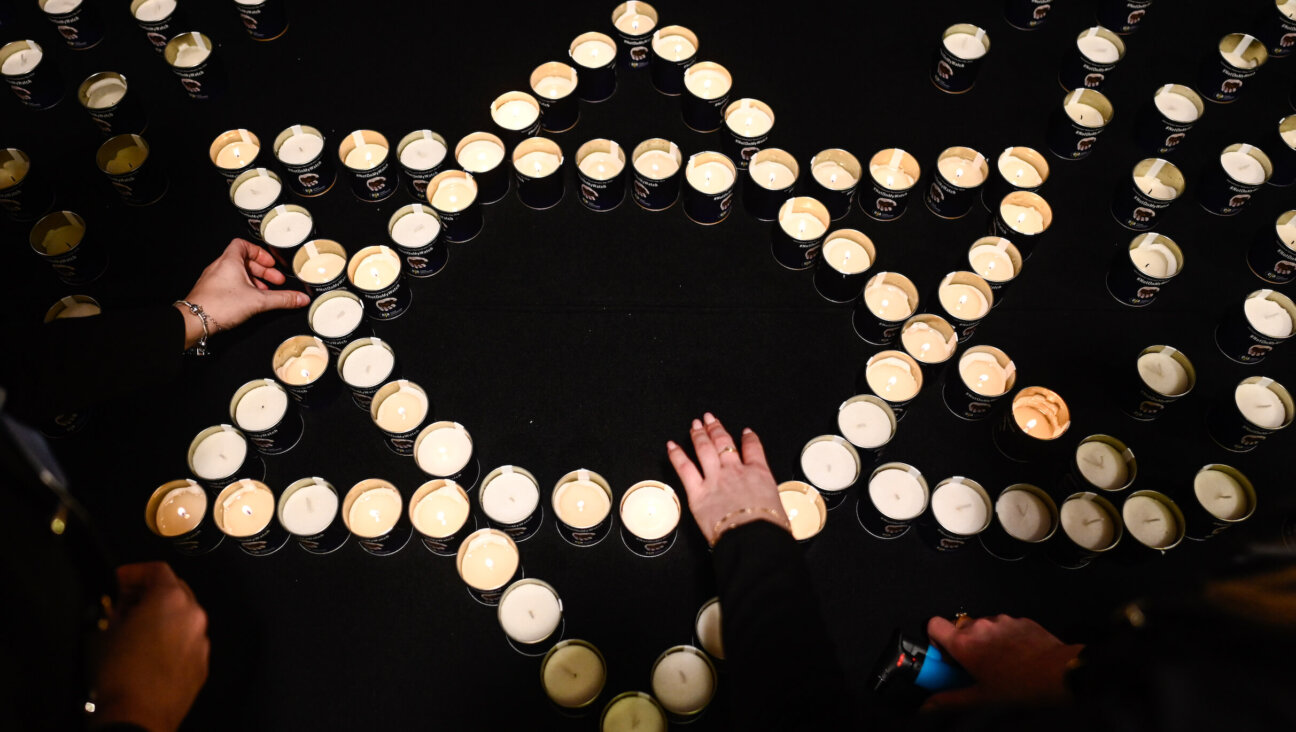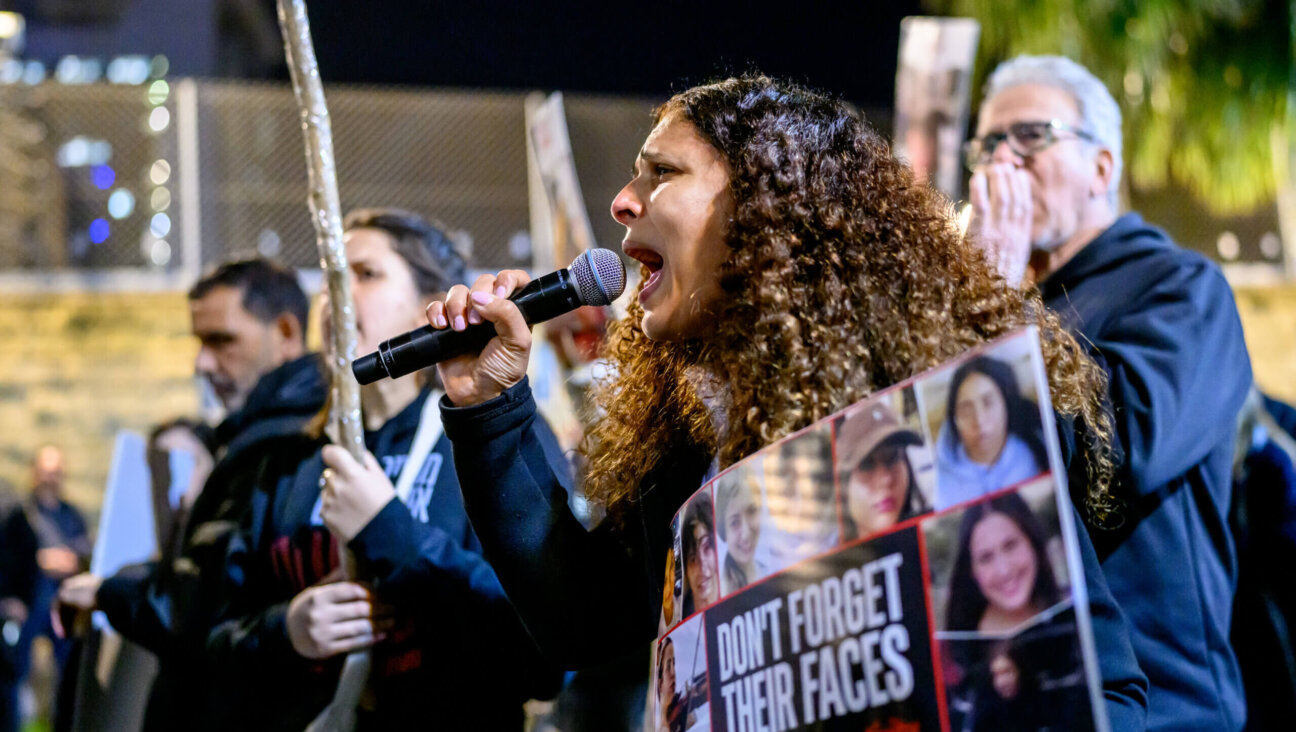Why Jews Should Celebrate The First Muslim Congresswomen

Image by Getty Images
These are dark, painful days in the fight for a more just America. At a time when so many historically marginalized groups are under attack from an Administration that seeks a whiter America at every opportunity, breakthroughs in congressional representation feel like a breath of fresh air. They feel like hope, like there is still a chance that the bright future we believed in during the Obama Administration is possible.
Seeing the victories of Sharice Davids and Christine Hallquist, who would be the first Native American in congress and first transgender governor respectively, brought me a heady feeling, as did the victory of Rashida Tlabib, who is running unopposed in Michigan and will almost certainly be the first Muslim woman and first Palestinian in Congress. She is joined by Ilhan Omar, the first Somali American to become a legislator in 2016, now the nominee for Minnesota’s 5th district and heavily favored to win.
I felt such joy when I realized that we are likely to welcome not one but two Muslim congresswoman in 2019.
And yet.
That potent high soon turned to doubt and fear for myself and many members of the Jewish community when Omar referred to the “Apartheid Israeli regime,” and Tlaib promised to vote to end aid to Israel.
Would the election of two Muslim women to congress spell trouble for our commitment to Israel?
I am horrified that any candidate for congress would promise to vote against aid to Israel. Military aid to Israel saves Jewish lives — the lives of Israelis under constant threat of rocket fire in the south. Withdrawing it would hurt U.S. interests in the region, too.
It’s equally frightening that any candidate for congress would eschew a two state solution — something Tlaib did last week, causing J Street to withdraw its endorsement.
While Tlabib envisions a free and equal one state utopia, a one state solution undermines Jewish self determination as well as Palestinian sovereignty and national aspirations. It is a proposal to dismantle three different governments and deny people self determination. In the unlikely event this was achieved, it would be destined to fail. Self determination is not, as Tlaib put it, separate but equal.
Similarly, Omar’s comments claiming Israel to be an Apartheid government are repugnant to me and ignore the complexities of the conflict. Many American Jews have serious concerns about the current government, including the nation-state law, the lack of religious pluralism and LGBTQ rights, the treatment of refugees, and much more.
That said, the unfounded accusation of Apartheid does nothing to create an environment in which forward motion on peace and justice is possible. Even worse, the accusation that Israel has “hypnotized the world” — something Omar tweeted in 2012 — smacks of anti-Semitic conspiracy theories. This trope of Jewish manipulation is common in white supremacist movements and should never be uttered by a candidate for office on either side of the aisle.
This is not language that builds bridges, but language designed to burn them down.
But we should not let one errant tweet destroy this relationship before it has even begun. Our community should invest time and energy discussing with Omar why this language was problematic and hurtful in order to provide the opportunity for education and evolution. We should give her the opportunity to move past this problematic tweet by building strong relationships with this rising political star. It is both the kind thing to do and smart advocacy strategy.
There is justifiable fear among Jewish progressives that the American progressive movement has turned a blind eye to anti-Semitism, and that anti-Semitism among progressive activist circles is growing. There is fear that Jewish American progressives could find ourselves abandoned and politically homeless. There is a reason we are so focused on the Jeremy Corbyn story; it is our worst nightmare.
All of these fears are valid. And yet, it’s wrong to project them onto Omar and Tlabib.
I can celebrate their victories for freedom and equality, while simultaneously demanding accountability on issues that matter to me like Israel, because my love of Israel is not born of Islamaphobia. My Zionism is born of love and liberation, not hate.
Omar is an inspiration to many, including me, with her incredible journey from refugee to America’s first Somali elected official and likely to be the first African refugee elected to Congress. These would be incredible achievements for anyone, especially someone who is only 36 years old.
This is the America progressives want to believe in and nurture.
Despite their comments on Israel, any victory that challenges the status quo of a predominantly white and upper class congress is ultimately good for America and good for American Jews.
We Jews should celebrate this victory for American multiculturalism, and engage in pro-Israel advocacy with these candidates just as we would any candidate. If you want Omar to see that Israel is not an Apartheid state, go to her next town hall and make your case. If you are upset that Tlabib would vote against military aid to Israel, set up a lobby meeting with her staff and share stories of how the Iron Dome saves lives.
Build relationships. Try to move the needle in a civil and strategic way. Our community has been enormously successful in mobilizing political support for Israel. We have nothing to fear from welcoming new members of congress, regardless of where they are from or who how worship.
We simply have work to do, the same work we have done since the 1940s.
There is no need to engage in Islamophobia in order to be a pro-Israel advocate; in fact it undermines our cause. It erodes both the moral soul of our Zionism and our advocacy on the Hill. The most effective advocates build relationships, and nothing torches a relationship like the politics of hatred and fear.
Let’s send our congratulations to Ms. Tlabib and Ms. Omar, and let them know we look forward to meeting them as soon they unpack their offices. We have much to discuss with them, and the over 80 new Members of Congress who will be joining them for the 116th Congress.
Carly Pildis is an organizing and advocacy professional living in Washington, DC.
The Forward is free to read, but it isn’t free to produce

I hope you appreciated this article. Before you go, I’d like to ask you to please support the Forward.
Now more than ever, American Jews need independent news they can trust, with reporting driven by truth, not ideology. We serve you, not any ideological agenda.
At a time when other newsrooms are closing or cutting back, the Forward has removed its paywall and invested additional resources to report on the ground from Israel and around the U.S. on the impact of the war, rising antisemitism and polarized discourse.
This is a great time to support independent Jewish journalism you rely on. Make a gift today!
— Rachel Fishman Feddersen, Publisher and CEO
Support our mission to tell the Jewish story fully and fairly.
Most Popular
- 1

Culture Cardinals are Catholic, not Jewish — so why do they all wear yarmulkes?
- 2

Fast Forward Ye debuts ‘Heil Hitler’ music video that includes a sample of a Hitler speech
- 3

News School Israel trip turns ‘terrifying’ for LA students attacked by Israeli teens
- 4

Fast Forward Student suspended for ‘F— the Jews’ video defends himself on antisemitic podcast
In Case You Missed It
-

Yiddish קאָנצערט לכּבֿוד דעם ייִדישן שרײַבער און רעדאַקטאָר באָריס סאַנדלערConcert honoring Yiddish writer and editor Boris Sandler
דער בעל־שׂימחה האָט יאָרן לאַנג געדינט ווי דער רעדאַקטאָר פֿונעם ייִדישן פֿאָרווערטס.
-

Fast Forward Trump’s new pick for surgeon general blames the Nazis for pesticides on our food
-

Fast Forward Jewish feud over Trump escalates with open letter in The New York Times
-

Fast Forward First American pope, Leo XIV, studied under a leader in Jewish-Catholic relations
-
Shop the Forward Store
100% of profits support our journalism
Republish This Story
Please read before republishing
We’re happy to make this story available to republish for free, unless it originated with JTA, Haaretz or another publication (as indicated on the article) and as long as you follow our guidelines.
You must comply with the following:
- Credit the Forward
- Retain our pixel
- Preserve our canonical link in Google search
- Add a noindex tag in Google search
See our full guidelines for more information, and this guide for detail about canonical URLs.
To republish, copy the HTML by clicking on the yellow button to the right; it includes our tracking pixel, all paragraph styles and hyperlinks, the author byline and credit to the Forward. It does not include images; to avoid copyright violations, you must add them manually, following our guidelines. Please email us at [email protected], subject line “republish,” with any questions or to let us know what stories you’re picking up.
















